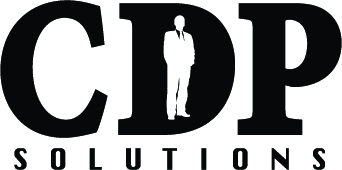Blog
Efficiency Enhancement Strategies in the Metals Industry Lessons from CDP Solutions

Efficiency Enhancement Strategies in the Metals Industry: Lessons from CDP Solutions
In today’s fast-paced and competitive manufacturing industry, efficiency is paramount. Every successful company is constantly seeking ways to streamline their processes, minimize waste, and maximize productivity. This holds true particularly in the metals industry, where precision and optimization are essential for success.
As industry specialists, CDP Solutions understands the pressing challenges faced by metal manufacturers and has worked closely with numerous clients to develop proven strategies for enhancing efficiency. In this blog post, we aim to share some invaluable insights and practical lessons we’ve learned along the way.
I. Improving Supply Chain Management
A well-optimized supply chain is essential for maximizing efficiency in the metals industry. Ensuring a consistent and reliable flow of raw materials, minimizing transportation costs, and reducing lead times are vital for smooth operations. One strategy to achieve this is by implementing advanced planning and scheduling (APS) systems.
APS systems allow companies to accurately forecast demand and plan production, transportation, and inventory levels accordingly. By integrating data from various sources, such as customer orders, production schedules, and supplier information, APS systems provide real-time insights and enable proactive decision-making.
For example, a leading metal manufacturer in the United States implemented an APS system and experienced significant improvements in their supply chain management. By accurately predicting customer demand and optimizing production schedules, they were able to reduce lead times by 30% and decrease inventory holding costs by 20%.
To successfully implement APS systems, close collaboration between all departments involved in the supply chain is crucial. It is also essential to ensure data accuracy and reliability to avoid disruptions downstream. With proper planning and implementation, improved supply chain management can lead to substantial efficiency gains in the metals industry.
II. Adopting Lean Manufacturing Principles
Lean manufacturing principles have long been recognized as effective strategies for enhancing efficiency in various industries, including metals manufacturing. By eliminating waste, minimizing defects, and optimizing processes, lean principles aim to create a streamlined and highly productive operation.
One key aspect of lean manufacturing is the implementation of value stream mapping (VSM). VSM is a visual tool that allows companies to analyze and optimize their production processes by identifying non-value-added activities and eliminating them.
For instance, a steel fabrication plant utilized VSM to map their production processes and identify areas of waste and inefficiency. By eliminating unnecessary movement, rework, and wait times, they were able to reduce cycle times by 25% and improve overall productivity by 15%.
In addition to VSM, companies can also implement practices such as 5S, cellular manufacturing, and kanban systems to further enhance efficiency. These lean tools and techniques promote a culture of continuous improvement and empower employees to identify and eliminate waste.
III. Continuous Improvement Initiatives
Continuous improvement initiatives are crucial for maintaining and enhancing efficiency in the metals industry. By implementing structured processes and encouraging employee involvement, companies can drive a culture of continuous improvement that leads to sustainable growth.
One effective method to implement continuous improvement initiatives is through the use of Lean Six Sigma methodologies. Lean Six Sigma combines the principles of lean manufacturing and Six Sigma to identify and eliminate process variations and defects while maximizing customer value.
For example, a copper tubing manufacturer in Europe adopted Lean Six Sigma principles and achieved significant improvements in their operations. By reducing defects and process variations, they were able to increase production capacity by 20% and reduce customer complaints by 30%.
To effectively implement continuous improvement initiatives, companies should focus on providing comprehensive training to employees, establishing clear metrics for measuring improvement, and fostering a supportive and collaborative work environment.
IV. The Role of Technology in Boosting Efficiency
Technology plays a vital role in enhancing efficiency in the metals industry. From automation and robotics to data analytics and artificial intelligence, technological advancements offer numerous opportunities for process optimization and productivity gains.
One area where technology can have a significant impact is equipment maintenance and reliability. By implementing predictive maintenance systems, companies can monitor equipment performance in real-time, identify potential failures before they occur, and schedule maintenance activities accordingly.
For instance, a large aluminum smelting plant in Asia implemented a predictive maintenance system that continuously monitored critical equipment parameters. By identifying early signs of failure and scheduling proactive maintenance, they were able to reduce unscheduled downtime by 40% and increase equipment reliability by 15%.
In addition to predictive maintenance, companies can also leverage data analytics to optimize production processes, improve quality control, and enhance supply chain management. By analyzing large datasets generated during the manufacturing process, companies can uncover inefficiencies, identify root causes of defects, and make data-driven decisions.
V. Innovative Solutions for Efficiency Enhancement
Innovation is key to staying ahead in the metals industry. By embracing new technologies and exploring unconventional solutions, companies can unlock new levels of efficiency and gain a competitive edge.
One example of an innovative solution is the use of additive manufacturing, also known as 3D printing. By utilizing metal 3D printing techniques, companies can reduce material waste, eliminate the need for expensive tooling, and produce complex components with superior performance.
For instance, a leading aerospace manufacturer incorporated metal 3D printing into their production processes and achieved remarkable results. By printing lightweight yet strong components, they were able to reduce fuel consumption, enhance aircraft performance, and decrease production costs by 30%.
Another innovative solution is the implementation of logistics optimization software. By utilizing advanced algorithms and machine learning, these software systems can optimize transportation routes, minimize fuel consumption, and reduce delivery lead times.
For example, a large steel distributor in North America implemented a logistics optimization software and experienced significant improvements in their transportation operations. By optimizing truck routing and load consolidation, they were able to reduce transportation costs by 25% and improve on-time deliveries by 20%.
Conclusion
Efficiency enhancement strategies in the metals industry are essential for staying competitive in today’s fast-paced manufacturing environment. From improving supply chain management to adopting lean manufacturing principles, implementing continuous improvement initiatives, leveraging technology, and exploring innovative solutions, companies can revolutionize their operations and achieve sustainable growth.
By embracing these strategies, companies in the metals industry can maximize productivity, minimize waste, and gain a competitive edge in the talent market. The key is to prioritize efficiency at every level of the organization, empower employees to drive change, and continuously seek opportunities for improvement. With a commitment to excellence and a proactive mindset, companies can unlock their full potential and thrive in the ever-evolving metals industry.
At CDP Solutions, our focus is on the manufacturing industry, with specialties in various segments such as metals, food processing, and specialty chemical manufacturing. Our expertise extends to a full spectrum of Pennsylvania manufacturing. With a global network and a commitment to providing unparalleled service, we prioritize efficiency enhancement strategies that drive sustainable growth in our clients’ operations.
In conclusion, the metals industry requires a relentless pursuit of efficiency. By implementing strategies such as improving supply chain management, adopting lean principles, implementing continuous improvement initiatives, harnessing technology, and embracing innovation, companies can achieve remarkable results. At CDP Solutions, we are dedicated to helping our clients in the manufacturing industry unlock their full potential and thrive in this ever-evolving landscape. Let us guide you toward a more efficient and profitable future.
